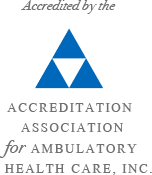Small Bowel Capsule Endoscopy in New York, NY

What is a small bowel capsule endoscopy?
Small bowel capsule endoscopy, also known as capsule enteroscopy or wireless capsule endoscopy, is an endoscopic procedure that allows your doctor to examine the lining of the middle part of your gastrointestinal tract, which includes the three portions of the small intestine (duodenum, jejunum and ileum). The procedure involves your doctor giving you a small, pill-sized video camera which you will swallow. This camera has its own light source and takes pictures of your small intestine as it passes through. These pictures are then sent to a small recording device you wear on your body for the duration of the procedure. After the capsule endoscopy is completed, your doctor will be able to view these pictures and provide you with useful information regarding your small intestine.
Why is a small bowel capsule endoscopy performed?
Capsule endoscopy helps your doctor evaluate the small intestine, which is a part of the bowel that can’t be reached by traditional upper endoscopy or by colonoscopy. The most common reason for doing capsule endoscopy is to search for a cause of bleeding from the small intestine. It may also be useful for detecting polyps, inflammatory bowel disease (Crohn’s disease), ulcers, and tumors of the small intestine.
Is this procedure covered by insurance?
As is the case with most new diagnostic procedures, not all insurance companies are currently reimbursing for this procedure. You may need to check with your insurance company to ensure that this is a covered benefit.
What does getting a small bowel capsule endoscopy involve?
Before undergoing a small bowel capsule endoscopy, Our NYC gastroenterologists will provide specific instructions about how to prepare for your procedure. An empty stomach allows for the best and safest examination, so you should have nothing to eat or drink, including water, for approximately twelve hours before the examination. Your doctor will tell you when to start fasting.
Before undergoing this procedure, you should inform your doctor about any medications you take including iron, aspirin, bismuth subsalicylate products and other over-the-counter medications. You may be advised to adjust your usual dose prior to the examination. Additionally, you should discuss any allergies to medications as well as medical conditions, such as swallowing disorders and heart or lung disease. Inform your doctor if you use a pacemaker or defibrillator, have undergone previous abdominal surgery, or have previous history of obstructions in the bowel, inflammatory bowel disease, or adhesions. In some cases, your doctor may ask you to do a bowel prep/cleansing prior to the examination.
Before you ingest the capsule, your doctor will apply a sensor device to your abdomen. Next, the pill-sized capsule endoscope is swallowed and passes naturally through your digestive tract while transmitting video images to a data recorder worn on your belt for approximately eight hours. The capsule will be excreted in a normal bowel movement. At the end of the procedure, you will return to the office and the data recorder is removed so that images of your small bowel can be put on a computer screen for physician review.
Patient testimonial
“My doctor, Forrest Manheimer MD was professional and compassionate. I appreciate the time he took to explain the procedure and put any concerns I had to rest.” – Lisa W.
What to expect after the procedure
You will be able to drink clear liquids after two hours and eat a light meal after four hours following the capsule ingestion, unless your doctor instructs you otherwise. You will have to avoid vigorous physical activity such as running or jumping during the study. Your doctor generally can tell you the test results within a week following the procedure. However, the results of some tests might take longer.
Schedule a consultation with our NYC Gastroenterologists Today!
If you believe you may need a small bowel capsule endoscopy, the first step is to consult with a skilled gastroenterologist. Gramercy Park Digestive Disease Center (GPDDC) is home to top board-certified gastroenterology physicians, with extensive experience in digestive disease diagnosis and treatment. Call (212) 979-3237 or use the form on this page to learn more about our GI services and treatments.


